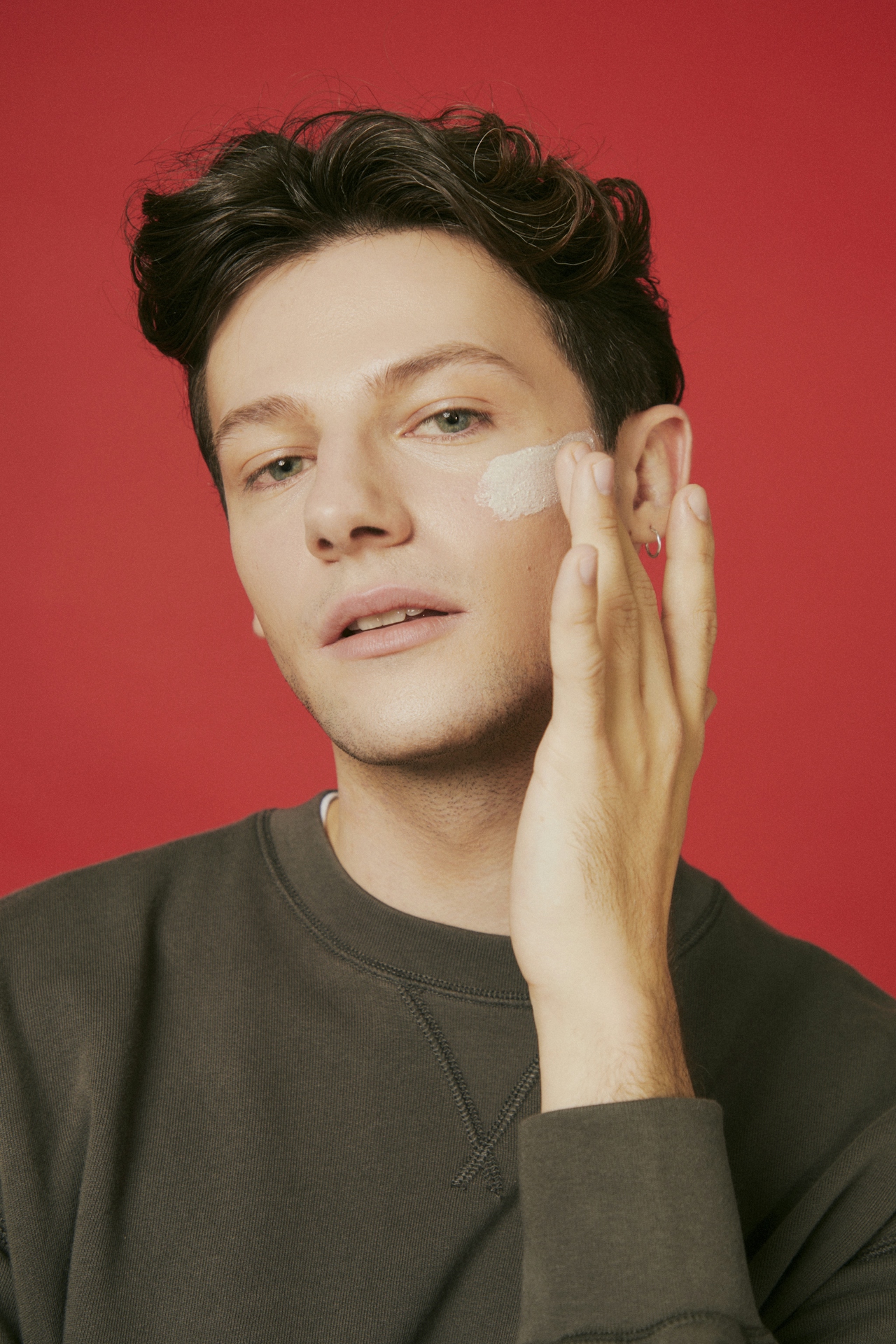- How Does Vitamin A Skincare Benefit the Skin?
- Potential Side Effects of Using Vitamin A Skincare (and Ways to Address Each One)
- The Differences Between the Vitamin A Retinoid Types to Choose From
- Differences Between Prescription vs. Over The Counter Vitamin A
- How Often Can You Use Vitamin A Skincare?
- How to Incorporate It into Your Skincare Routine
- What You SHOULD NOT Use Vitamin A Skincare Together With
- When You SHOULD NOT Use Vitamin A Skincare
Vitamin A is an essential nutrient that supports many bodily functions, including vision, immune system performance, and skin health. In skincare, Vitamin A is celebrated for its youth-preserving and revitalizing effects. It promotes cellular renewal, which can help diminish the visibility of wrinkles, fine lines, and sun-induced skin damage. Vitamin A derivatives, known as retinoids, are the key ingredients in many skincare products aiming to improve skin texture and tone.
How Does Vitamin A Skincare Benefit the Skin?
Vitamin A is scientifically and historically proven to benefit skin in different ways, including;
Boost Collagen
Vitamin A, particularly retinoids, stimulate the production of collagen, a protein that provides the scaffolding for your skin. Enhanced collagen production results in tighter, fuller skin, minimizing the visibility of sagging skin and signs of aging. Studies have shown that retinol use can increase collagen production by up to 80% after 12 weeks, visibly improving skin texture and elasticity. (1)
Enhanced Cell Turnover
Vitamin A acts as a natural cell communicator, accelerating the process of cell turnover. This means dead skin cells are shed more readily, revealing the fresher, brighter layers beneath. Studies have shown that this process also helps even out skin tone by addressing hyperpigmentation and dark spots caused by sun damage or uneven melanin production. (2)
Combating Acne and Oily Skin
Vitamin A regulates sebum (oil) production in the skin. This helps keep pores unclogged, preventing breakouts and reducing the appearance of oily skin. A study has proven that taking low-dose vitamin A can not only treat acne vulgaris but also prevent future flare-ups. (3)
Target Hyperpigmentation
As mentioned earlier, Vitamin A promotes cell turnover, which helps address hyperpigmentation caused by sun damage. By encouraging the shedding of pigmented cells, it allows newer, healthier cells to take their place. This study (4) shows that vitamin A supplementation results in a more even skin tone and a marked reduction in the sunspots and dark spots.
Overall Skin Radiance and Health
The combined effects of increased collagen, faster cell turnover, and reduced blemishes contribute to a radiant and healthy-looking complexion. Vitamin A also possesses antioxidant properties, helping protect the delicate skin layers from free radical damage. This can further enhance skin health and promote a youthful glow. (5)
Potential Side Effects of Using Vitamin A Skincare (and Ways to Address Each One)
Irritation
Irritation is a common side effect when starting Vitamin A skincare products. This can manifest as redness, dryness, or a stinging sensation. To mitigate this
- Begin with a lower concentration of the product (e.g., 0.3% retinol) and slowly increase potency as your skin adapts over time.
- Apply a pea-sized amount to ensure even distribution without overloading the skin.
- Follow up with a fragrance-free, non-comedogenic moisturizer to soothe and replenish moisture levels.
Redness
Redness is another common side effect. People with sensitive skin often experience redness and inflammation on the face after applying Vitamin A for the first time. To avoid this;
- Begin by applying the product every other night and gradually increase to nightly use as your skin adjusts.
- If redness persists, take a break for a few days and allow your skin to recover before reintroducing the product.
- If redness is localized, consider using the product only on targeted areas rather than the entire face.
Peeling
Peeling or flaking can occur as the skin adjusts to increased cell turnover. To combat this;
- Apply a mild scrub once or twice weekly to slough off dead cells without aggravating skin.
- Amp up your hydration routine with hyaluronic acid serums or hydrating masks to keep skin plump and supple.
- Layer a thicker moisturizer at night to provide extra hydration and prevent excessive peeling.
Sun Sensitivity
Vitamin A thins the outer layer of your skin, making it more susceptible to sunburn and damage from UV rays. Here’s how to combat this;
- Never skip sunscreen! Use a wide-range sun protection with SPF 30+ daily, regardless of weather. Reapply the sunscreen regularly, particularly when outside for long periods of time.
- Consider wearing hats and protective clothing when outdoors for prolonged periods.
The Differences Between the Vitamin A Retinoid Types to Choose From
Retinol
Retinol is the most common form of Vitamin A found in over-the-counter skincare products. It is less potent than other forms and is a good starting point for those new to retinoids. Retinol needs to be converted into retinoic acid by the skin before it can be effective, which makes it gentler and less likely to cause irritation.
Retinal/Retinaldehyde
Retinal, also known as retinaldehyde, is more potent than retinol but still available over-the-counter. It requires one less conversion step to become retinoic acid, meaning it works faster than retinol. This makes it a good middle-ground option for those who want quicker results without the intensity of prescription retinoids.
Retinoic Acid
Retinoic acid, also known as tretinoin, is a prescription-strength retinoid. It is the active form of Vitamin A and does not require any conversion by the skin. This makes it the most potent and effective form, but it can also be the most irritating. It is often prescribed for severe acne or more pronounced signs of aging.
Differences Between Prescription vs. Over The Counter Vitamin A
Prescription Options
Prescription options like tretinoin and isotretinoin are highly effective but require a doctor’s prescription. They are used for treating severe acne, pronounced wrinkles, and significant sun damage. These forms are more potent and can produce faster and more noticeable results, but they also come with a higher risk of side effects such as irritation, dryness, and peeling.
Over-The-Counter Options
Over-the-counter options like retinol and retinaldehyde are more accessible and gentler on the skin. They are suitable for gradual skin improvement and maintenance. These options are less likely to cause severe side effects, making them a good choice for beginners or those with sensitive skin.
How Often Can You Use Vitamin A Skincare?
The frequency of using Vitamin A skincare products depends on your skin’s tolerance. Beginners should start by applying the product 2-3 times a week. As your skin builds tolerance, you can gradually increase the frequency to nightly use. Listen to your skin carefully and adjust accordingly to avoid overuse, which can lead to irritation and dryness.
How to Incorporate It into Your Skincare Routine
- Cleanse Your Face: Begin with a gentle face wash to cleanse your skin of impurities, sebum, and cosmetics.
- Apply Vitamin A Product: Use a pea-sized amount of your Vitamin A product. Apply it evenly across your face, avoiding the eye area.
- Moisturize: Finish with a nourishing lotion to seal in hydration and reduce possible skin dryness or irritation resulting from retinoid use.
- Sunscreen: In the morning, always apply sunscreen as the last step in your routine. Retinol may heighten your skin’s sun sensitivity, elevating the chances of sunburn and potential skin harm.
What You SHOULD NOT Use Vitamin A Skincare Together With
Alpha Hydroxy Acids (AHAs) and Beta Hydroxy Acids (BHAs)
Using Vitamin A skincare products with AHAs or BHAs can increase the risk of irritation and sensitivity. These acids are strong exfoliants and can cause excessive dryness and peeling when used with retinoids.
Benzoyl Peroxide
Benzoyl peroxide is another acne treatment that can be too harsh when used with retinoids. It can cause excessive dryness and irritation.
Vitamin C
While both Vitamin A and Vitamin C are beneficial for the skin, using them together can cause irritation, especially for sensitive skin. It’s best to use Vitamin C in the morning and Vitamin A at night.
When You SHOULD NOT Use Vitamin A Skincare
While Vitamin A offers a multitude of benefits for various skin concerns, it’s not a one-size-fits-all solution. Here are some situations where it’s best to avoid Vitamin A skincare or proceed with caution:
1. During Pregnancy or Breastfeeding:
- Birth Defect Risk: Vitamin A derivatives, particularly high doses, can potentially cause birth defects. Avoid using Vitamin A skincare products altogether during pregnancy and breastfeeding.
- Always Consult Your Doctor: If you’re considering any new skincare routine while pregnant or breastfeeding, consult a healthcare professional for guidance. They can recommend safe alternatives or advise on the appropriate timing for incorporating Vitamin A products.
2. If You Have Extremely Sensitive Skin:
- Potential for Intense Irritation: For those with very sensitive skin, even low concentrations of Vitamin A can cause excessive dryness, redness, and irritation.
- Start Very Low or Consult a Dermatologist: If you have sensitive skin and are set on trying Vitamin A, begin with the absolute lowest concentration available and introduce it very gradually. It’s also highly recommended to consult a dermatologist for personalized advice and product recommendations tailored to your specific sensitivity level.
3. When Using Other Exfoliating Treatments:
- Over-Exfoliation Risk: Vitamin A itself acts as an exfoliant by accelerating cell turnover. Combining it with other strong exfoliating ingredients like AHAs (alpha hydroxy acids) or BHAs (beta hydroxy acids) can lead to over-exfoliation, causing excessive dryness, peeling, and irritation.
- Alternate or Space Out Applications: If you currently use AHAs/BHAs in your routine, consider using them on alternate nights or consult a dermatologist for guidance on incorporating both types of products safely.
4. If You Have Open Wounds or Sunburn:
- Increased Irritation: Vitamin A can irritate open wounds or sunburned skin. It’s best to allow these conditions to heal completely before resuming your Vitamin A skincare routine.
5. When Taking Certain Medications:
- Potential Interactions: Certain medications, particularly antibiotics and acne medications, can interact with Vitamin A and increase the risk of side effects.
Consult Your Doctor: If you’re taking any medications, discuss the use of Vitamin A skincare with your doctor to ensure there are no potential interactions.



